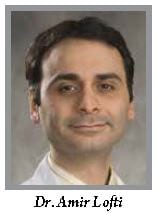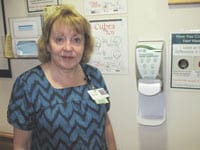Holiday Heart Syndrome – How to Protect Your Cardiovascular Health This Season
Q. My husband had a heart attack last year after Thanksgiving, and I overheard one of the doctors talking to a nurse about ‘holiday heart syndrome.’ I never asked what that meant, and now that the holidays are here again, I want to be sure I don’t need to worry about my husband or any of our loved ones. Is holiday heart syndrome real?
A. We’re sorry to hear about your husband and hope he is doing well. Studies have shown that not only are the winter holidays associated with heart problems, but that, when they do occur, they are more likely to be fatal. According to a 2004 study published in the journal Circulation, researchers discovered increases of 5{06cf2b9696b159f874511d23dbc893eb1ac83014175ed30550cfff22781411e5} more heart-related deaths during the holiday season. Holiday heart syndrome is recognized by physicians as a very real and potentially deadly phenomenon. If left untreated, it can result in serious complications including heart attack and stroke, as well as enlargement of the heart muscles called cardiomyopathy.
Back in 1978, Philip Ettinger initially described holiday heart syndrome (HHS) as the occurrence, in healthy people without heart disease known to cause arrhythmia, of an acute cardiac rhythm disturbance known as atrial fibrillation, after excessive alcohol intake. He came up with the name since episodes of these cardiac arrhythmias — which can happen in regular and non-regular drinkers — typically occurred after weekends or holidays. Today, holiday heart syndrome is further considered to be the result of a combination of factors beyond just drinking alcohol, including caffeine and the over consumption of fatty meals filled with salt, as well as the stress that can accompany Thanksgiving, Hanukkah, Christmas, New Year’s Eve — all leading up to possibly suffering a heart attack.
In a study published in 2013 by the U.S. National Library of Medicine titled “Holiday Heart Syndrome Revisited After 34 Years,” its authors noted that “alcohol has a definite role in cardiac arrhythmia, either by chronic abuse or by binge drinking.” They further noted that, for patients visiting the emergency room with palpitations or other symptoms associated with cardiac arrhythmias, a “high suspicion of HHS should occur” if the patient exhibits signs of being intoxicated or admits to a recent episode of binge drinking.
The authors concluded that, after the diagnosis of cardiac arrhythmia without evident heart disease, the physician should “explain the syndrome to the patient and recommend alcohol abstinence in an effort to prevent new episodes of HHS.”
While people with a history of heart failure or other cardiac conditions are at greater risk for serious complications, those who are otherwise healthy usually see their arrhythmias stabilized after treatment in an emergency room with beta blockers and other medications to reduce their heart rate.
That’s a long answer, but hopefully an informative one for you.
Q. Is there a connection between overeating and your heart?
A. An unusually heavy meal that the holidays are known for, or at any time of the year, can put additional stress on the heart as your meal is digested, and overeating and over drinking can increase your blood pressure and heart rate. Also, these meals tend to be associated with very high salt intake, which can lead to high blood pressure.
Also, some research suggests that enjoying just one huge meal, despite previous healthy eating habits, is a bad thing and can quadruple the ordinary risk of a heart attack during the two hours after eating. The good news is that the risk is all but gone as the clock strikes the third hour.
So, moderation is the key, especially for your husband, or anyone else in your family suffering from high blood pressure, high cholesterol, diabetes, or heart disease.
Q. How big a role does stress play on your health during the holidays?
A. Stress leads to anxiety and the release of epinephrine into the blood system, sometimes contributing to a rapid or irregular heartbeat. We don’t know your temperament, but it is better to simplify and emphasize family and friends rather than trying to create the perfect Norman Rockwell holiday.
Q. Are there any other things I should be aware of when trying to keep us heart-healthy during the holidays and winter months?
A. In addition to stress, another factor to consider is the cold weather around the holidays, which is hard on the heart and puts extra strain on it.
What happens is that your arteries tend to tighten up when you are out in the cold, your blood pressure goes up, and this can overload your heart, possibly leading to a heart attack. If you have previously suffered a heart attack or have heart disease, you should avoid shoveling snow and other types of outdoor exertion, particularly if you are out of shape and haven’t been exercising regularly. Let someone else do it, like a nephew or neighbor. And be sure to bundle up when going out into the cold. While the combination of cold weather and shoveling can increase one’s chances of having a heart attack, the likelihood is about 1 in 100,000 people, still a pretty small chance.
But it’s not so much the day-to-day cold of the winter that poses a threat as much as it is a sudden shift in weather. Literature suggests that these sudden shifts, such as going from warm to cold in a very short time, puts extra stress on the heart, leading to a possible heart attack.
But, to put things into perspective, these are small risks compared to the risks that smoking, diabetes, hypertension, being overweight, and physical inactivity in the colder months all place on your chances of developing coronary artery disease.
So, our best advice to you and your husband is to celebrate with family and friends, eat modestly, avoid binge drinking, and, as always, remember that ‘exercise is medicine.’ Just be sure to do most of your exercise indoors this winter.



Comments are closed.